2023 MIDYEAR REPORT
INSTITUTIONAL PHILANTHROPY: PARTNERS IN DEVELOPMENT
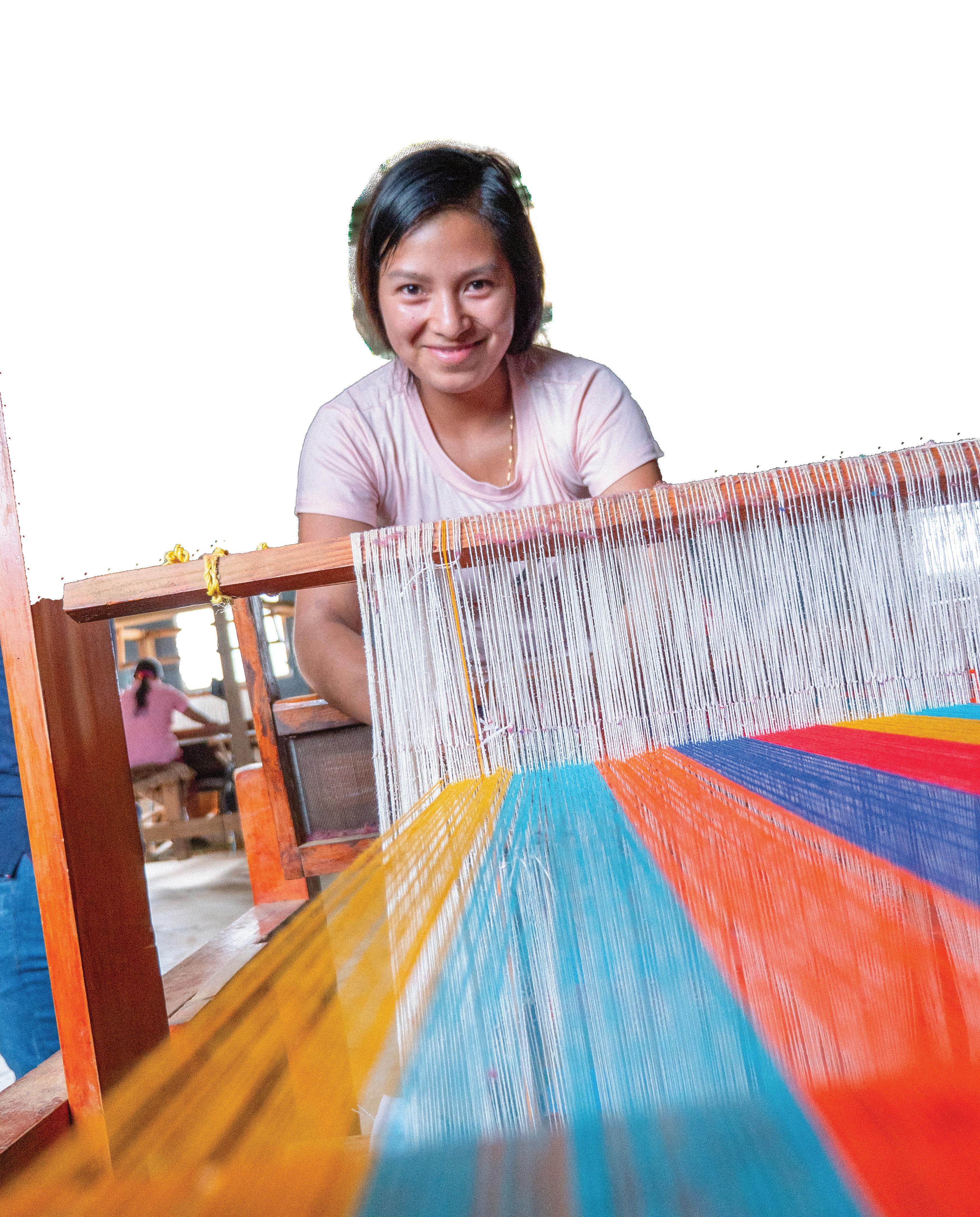
For more than 40 years, Food For The Poor has brought about transformative change for impoverished families in developing countries. Our Sustainable Livelihoods Department has not only formed new alliances in international development but has empowered women who faced innumerable challenges to becoming self-sufficient. Thanks to the consistent support of our many partners, women who live in our hemisphere’s most impoverished places now have renewed hope for the stability of their families.
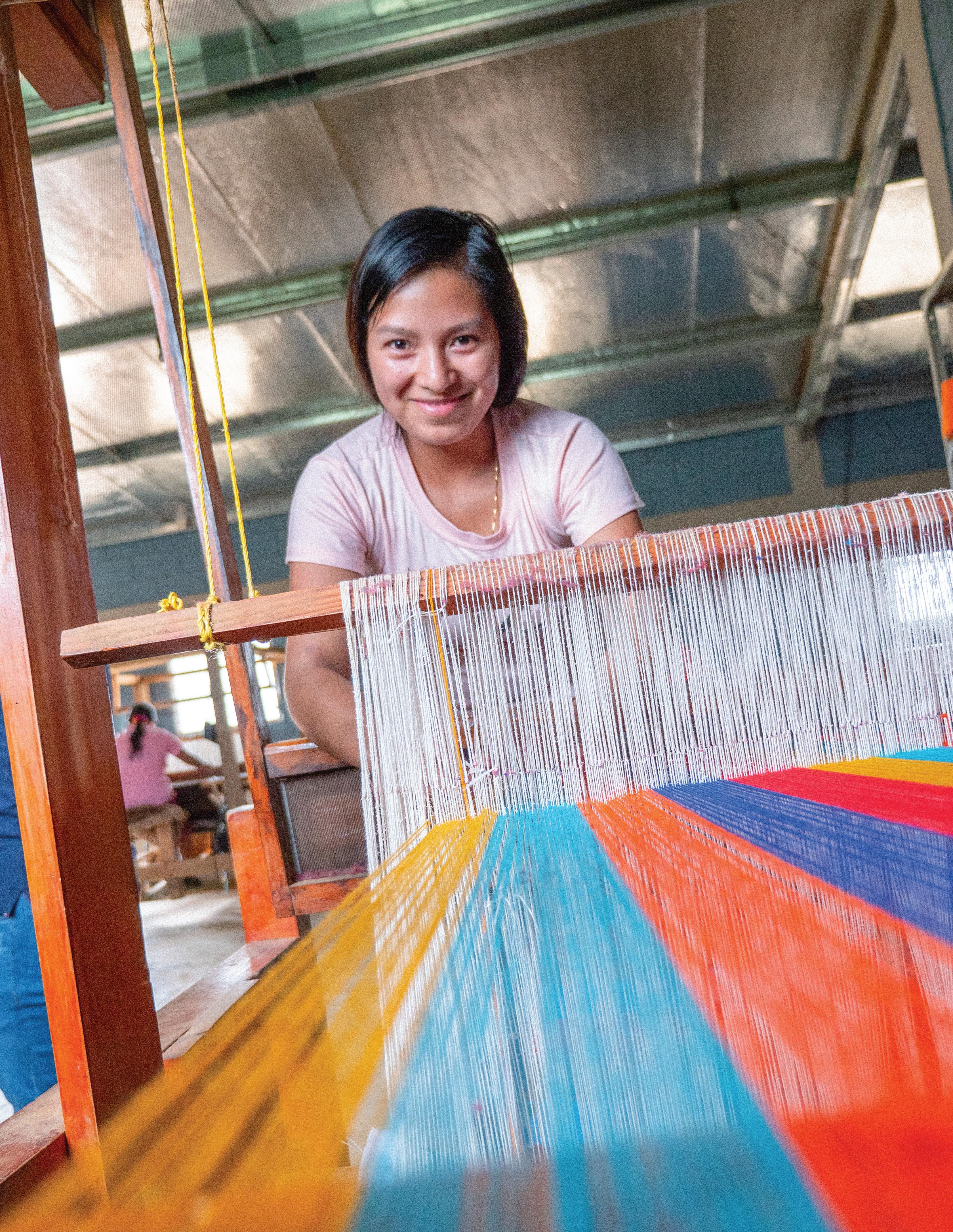
6401 Lyons Road Coconut Creek, FL 33073 954-427-2222 • www.FoodForThePoor.org
Truck Driving School


Gives Ambitious Women a Brighter Future
A transportation school in Honduras is fueling women with new careers by teaching them how to drive tractor trailers. Our innovative partnership with CEPUDO, a Honduras-based nonprofit, is providing scholarships for talented and motivated women in Puerto Cortés, Honduras. The goal is to equip these women with the skills they need to operate commercial vehicles, opening up a new world of job opportunities and financial stability in a country where many women earn less than $2 a day.
Truck drivers can earn $10,000 in Honduras to start, and work their way up quickly. Certification takes about four months. Since there is a shortage of truck drivers in Honduras, demand is high. Thanks to these scholarships, more than 70 women have graduated from the program, changing their lives and their families’ lives. Click to watch a video about the truck driving school
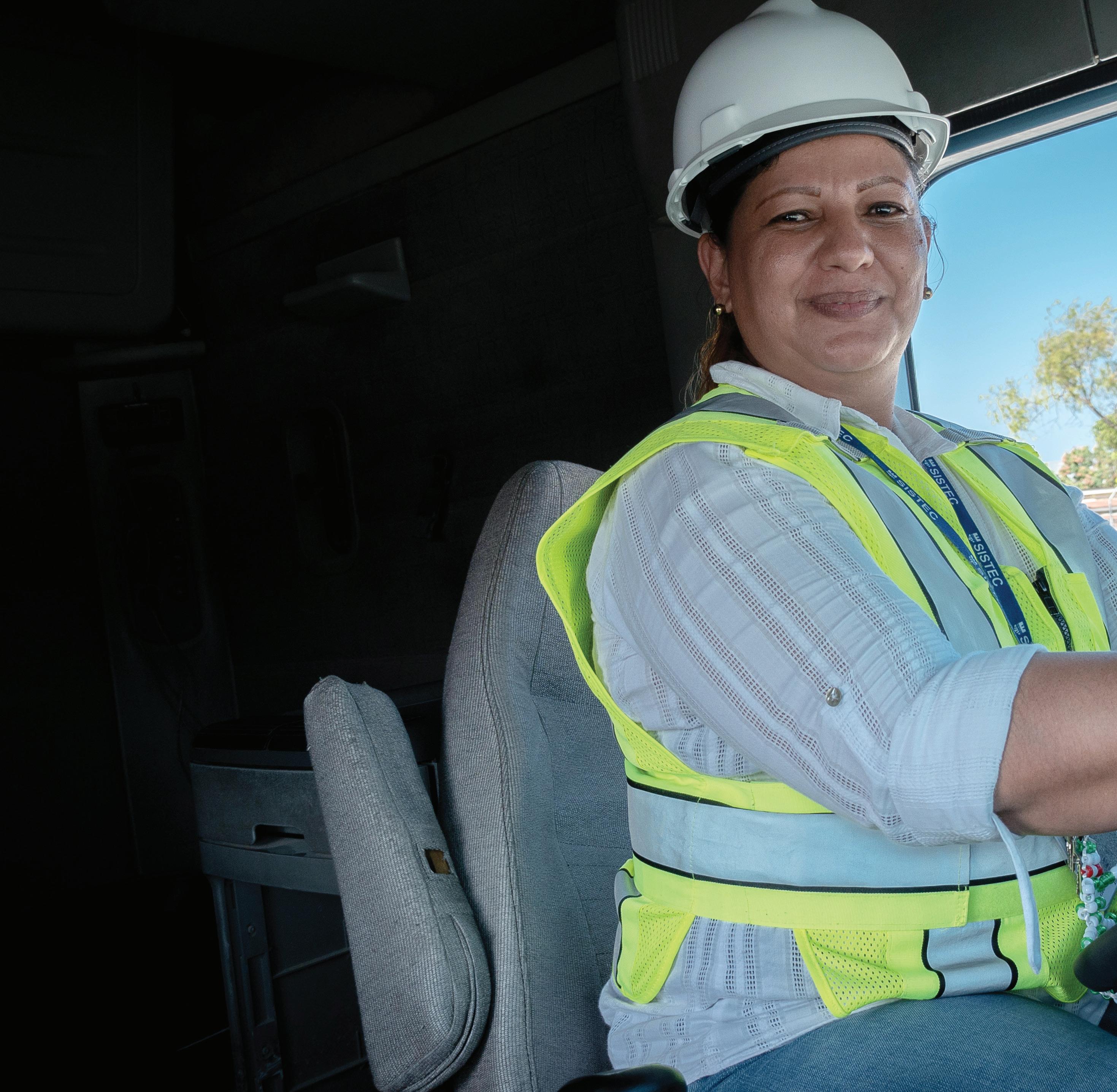
2
Artistic Women in Guatemala Learn Marketable Business Skills
The colorful and vibrant creations of indigenous women artisans of Guatemala have a rich history and culture. However, some women lacked access to resources and a ready market for their creations, until now.
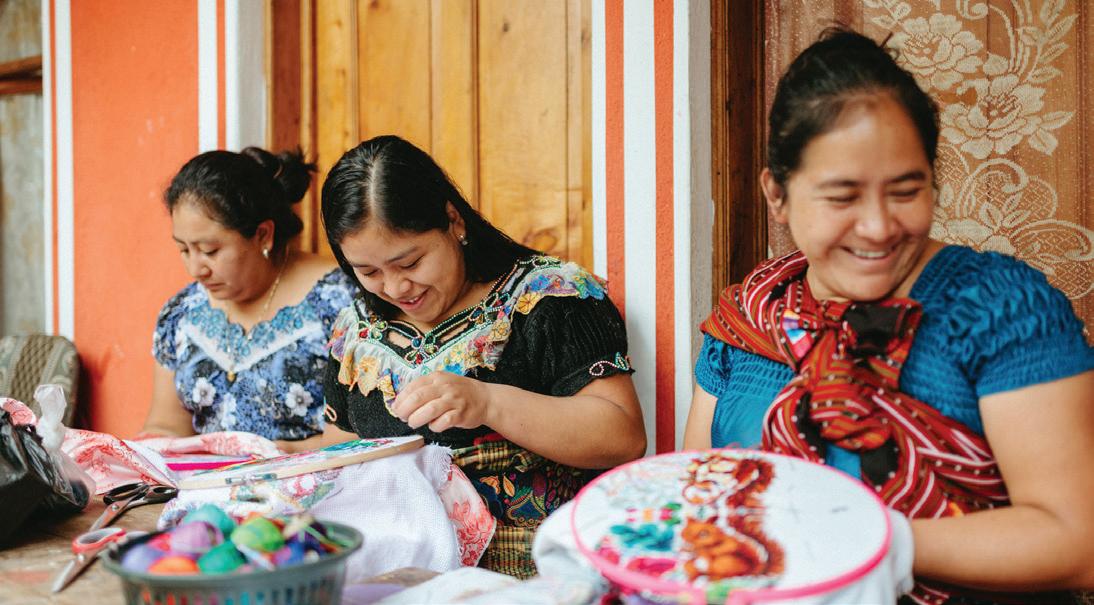
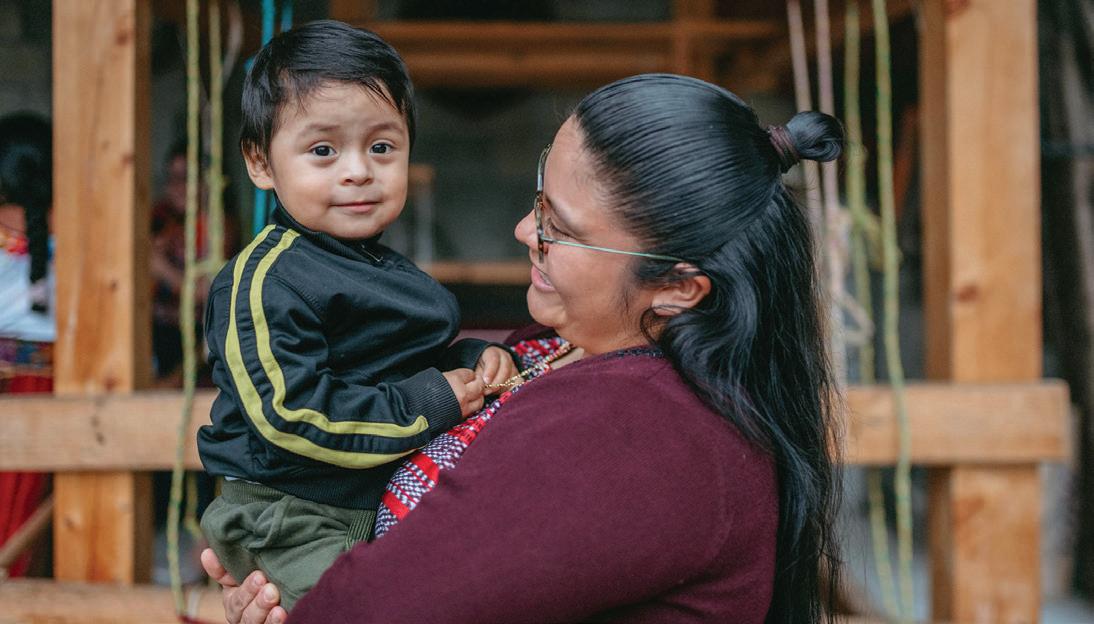
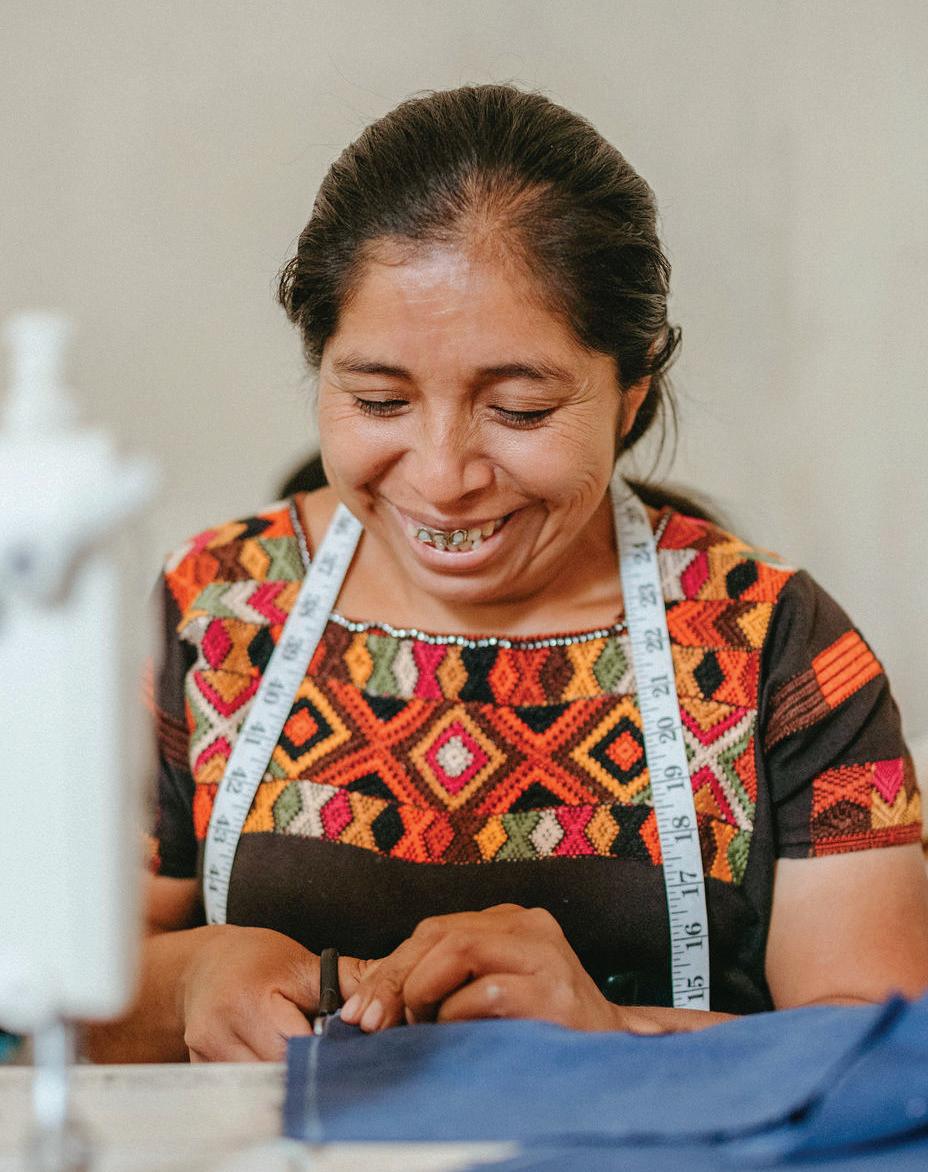
Thanks to the Market Readiness Training project, 466 indigenous women artisans are now flourishing entrepreneurs. They were trained in revenue-supporting activities and received the production tools and training needed to produce high-quality, marketable products that can compete in the global market. These women are no longer confined to selling their traditional textiles and crafts locally. They have gained skills and earned income by fulfilling orders with major international retailers. This groundbreaking project, in collaboration with Mercado Global, is driven by a shared commitment to empowering women and creating sustainable economic development opportunities.
Only nine months into the program, the participants are earning about $145.91 per month, which is much higher than the average indigenous income of only $2 a day. In addition, 176 participants now have bank accounts. Of those women, 55 were able to add to their savings accounts, which is 17% higher than the overall project goal. The retailers purchasing from the artisans include Levi’s, Von Maur, Shopbop and others.
Click to watch a video about this fascinating project
3
Beekeeping is an exciting economic incentive for Haitian women that not only produces income but contributes to food security in the region and helps the environment through pollination of crops.
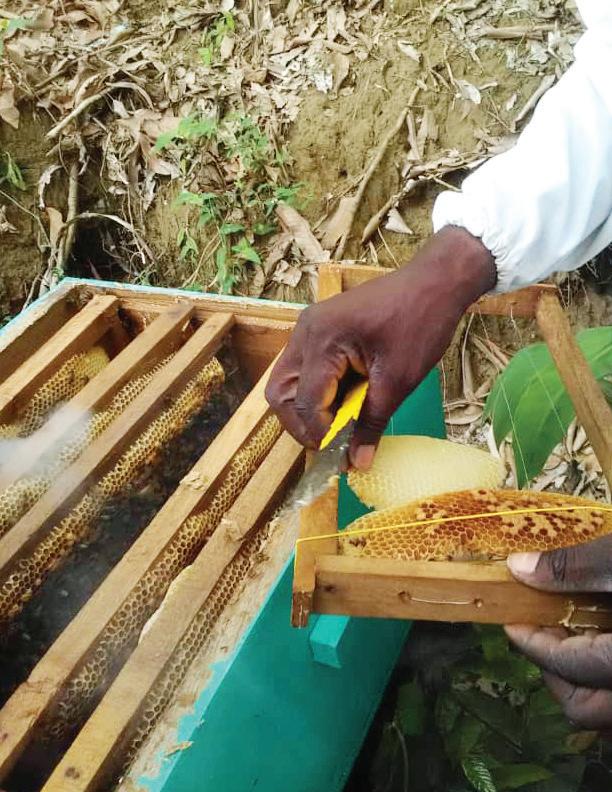
4
The Buzz: Economic Empowerment of Women in Haiti Through
Beekeeping
Beekeeping is an exciting economic incentive for Haitian women that not only produces income but contributes to food security in the region and helps the environment through pollination of crops. With local Haitian affiliates Fanm Limye (“Illuminated Women” in Creole) and Prosperity Catalyst, we are working to increase income for women beekeepers and help them provide for their families. The two-year initiative will serve 2,000 beekeepers in eight communities across the Nippes and Ouest departments.
Fanm Limye will provide training and equipment to the beekeepers. The training will include topics like sustainable beekeeping practices, honey harvesting and marketing skills. Beekeeping essentials such as hives and protective clothing will also be provided to ensure their safety. Through this initiative, these women will be able to boost their honey production, resulting in increased income for themselves and their families.
To promote their products, the beekeepers will also have access to local and international markets through the networks of Prosperity Catalyst and Fanm Limye. The organizations will provide marketing support to the beekeepers to ensure they can sell their products at fair prices. In addition to the economic benefits, the initiative will also help create a sustainable ecosystem that supports the livelihood of the women and their families.
Requiring little space and modest investments, beekeeping provides an excellent opportunity for women to become economically empowered. A hive can produce 48 pounds of honey a year. Beekeepers can sell the honey for about $100 a year per colony and make additional income by selling the beeswax. Women can typically earn about half the
money required for uniforms, books, fees and materials required to send a child to primary school.
By empowering vulnerable Haitian women through sustainable beekeeping practices, we hope to create a more prosperous future for the communities in the Nippes and Ouest departments of Haiti. Through initiatives like this, we can work toward creating a more sustainable future for those who need it most.

Click to watch a video of beekeeping in Haiti

5
Empowering Women Through Agricultural Training While
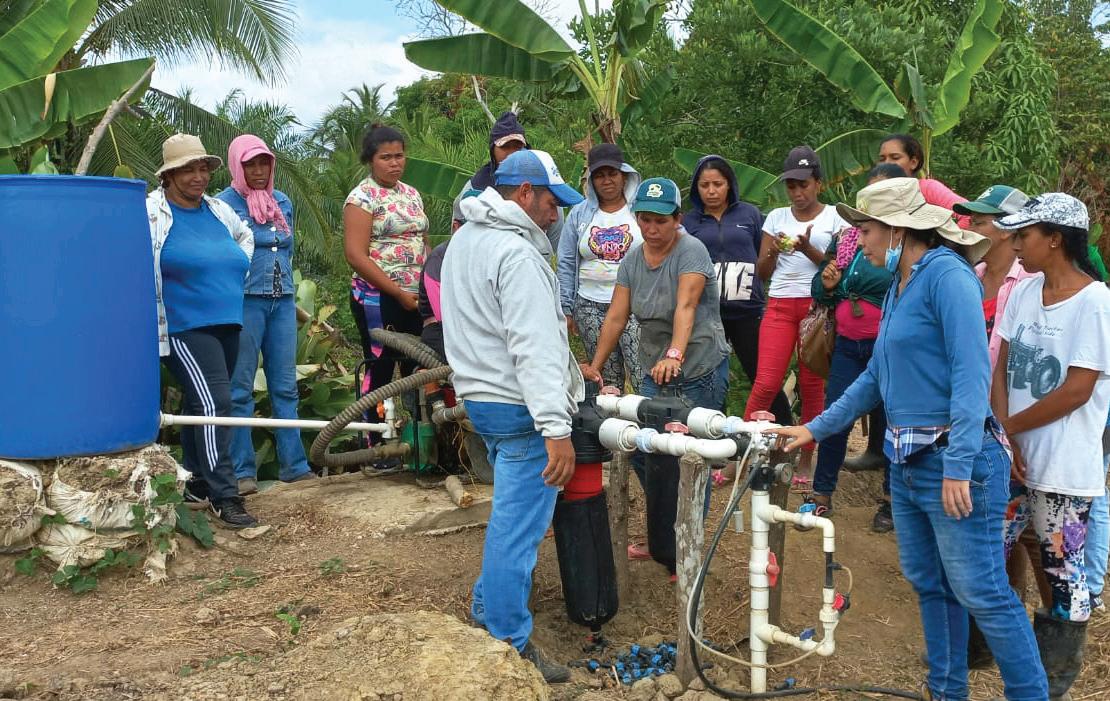
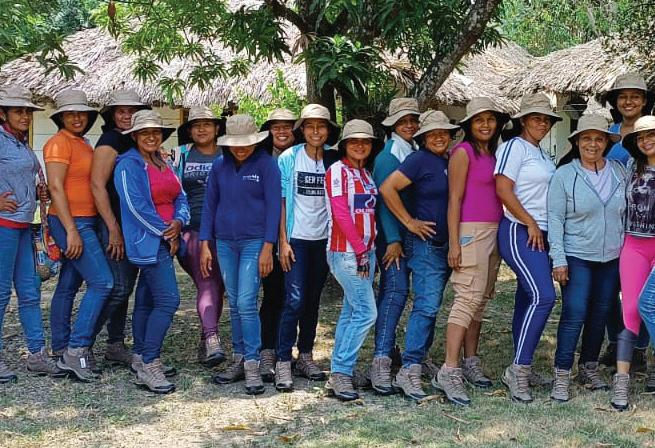
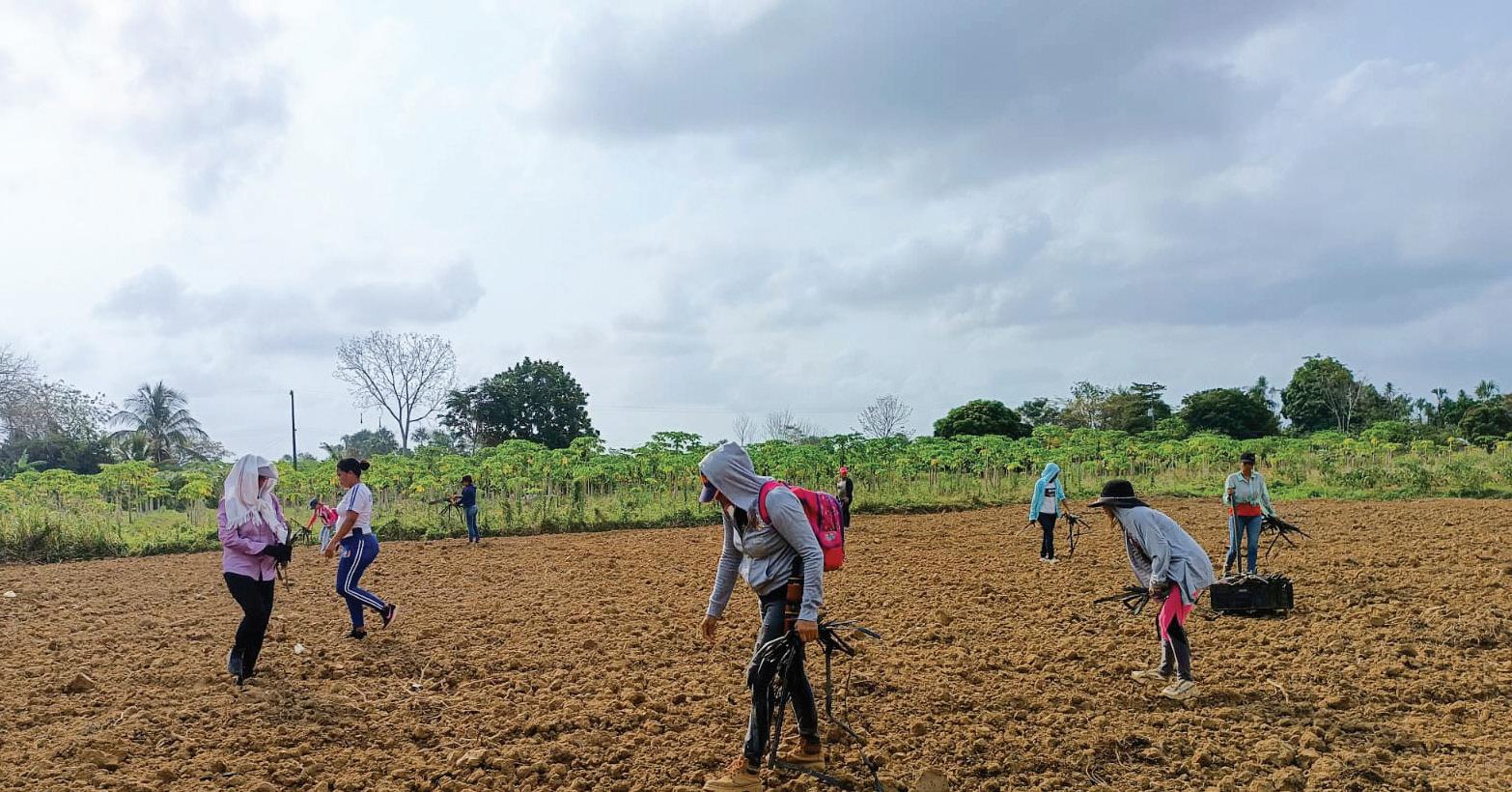
Feeding Hungry Children
The Urban Feeding and Training Farms project is more than just a feeding program. It’s a community initiative that aims to aid farming families while combating the ever-growing food insecurity issue in Colombia. In partnership with Accesso, we are launching six new community training farms that will empower 170 women and benefit 500 additional farmers in several Colombian regions.
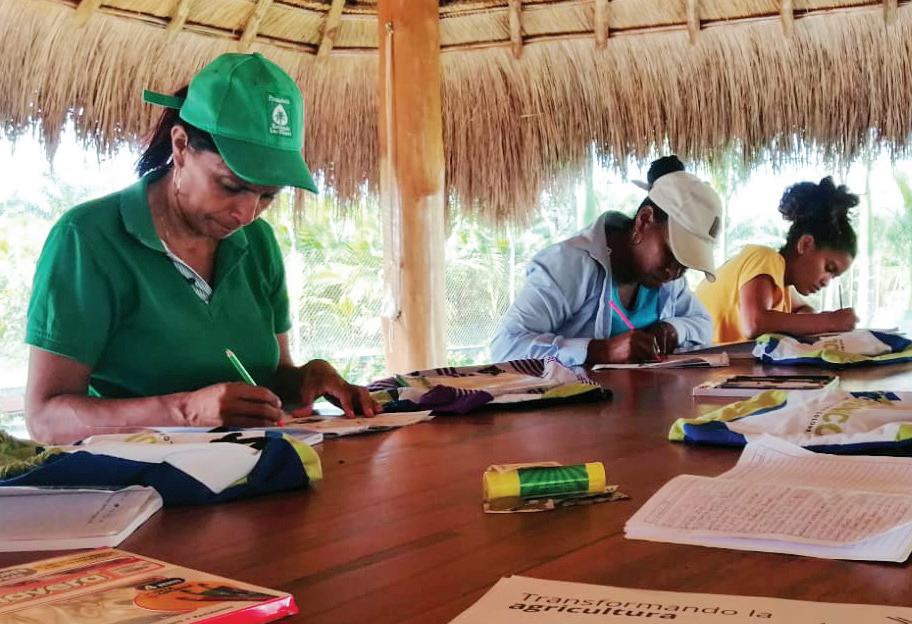
The project is a long-term solution to improve the health and well-being of vulnerable populations while providing economic opportunities for farming families. At the same time, the urban feeding program addresses the food insecurity of 1,000 children living in a low-income area. The children will receive more than 13 pounds of produce a week.
These farms will not only provide a source of food but also serve as a center for the community to learn essential skills such as crop rotation, pest management and soil conservation. Our goal is to create selfsustaining communities, where women can take charge of their food production and become entrepreneurs by selling surplus produce.
6
FFTP and CEPUDO Unite to Empower Rural Women and Boost Crop Production in Honduras

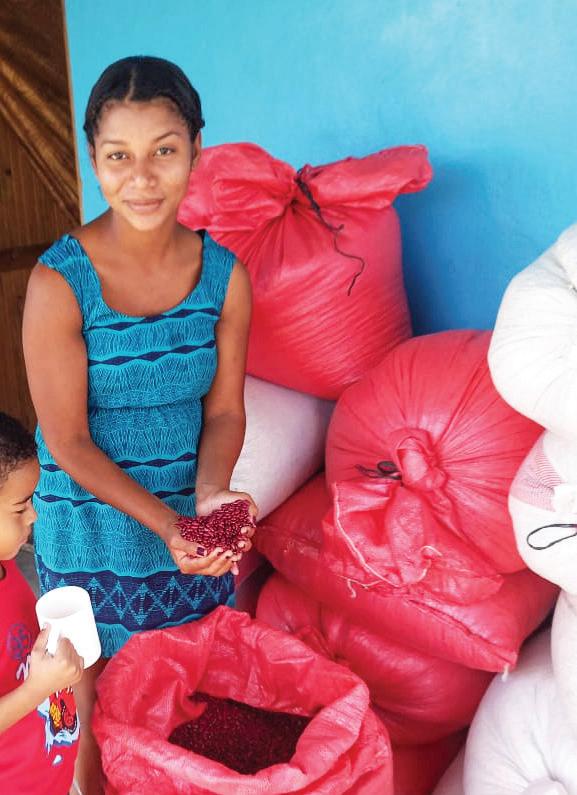
An innovative collaborative project supported by Food For The Poor and CEPUDO in Honduras is benefiting women farmers to give them an edge in a competitive market. Focused on women who own small plots of land, the UNIOYOL cooperative aims to increase the income and business skills of 20 women farmers, in addition to increasing their production of corn and beans. They will receive training and technical assistance, learn entrepreneurial skills and participate in women’s empowerment workshops.
The farmers, who are skilled in crop production, need to adapt to a multitude of changes in the agricultural industry to compete with other farmers. They will not only receive training to increase their yields by improving their skills, but the goal is to enable them to invest in their land.
UNIOYOL is comprised of nine groups from various communities around Yoro, Honduras. Their facilities and equipment were donated by the European Union and the World Food Programme, truly making this an international partnership effort.
7
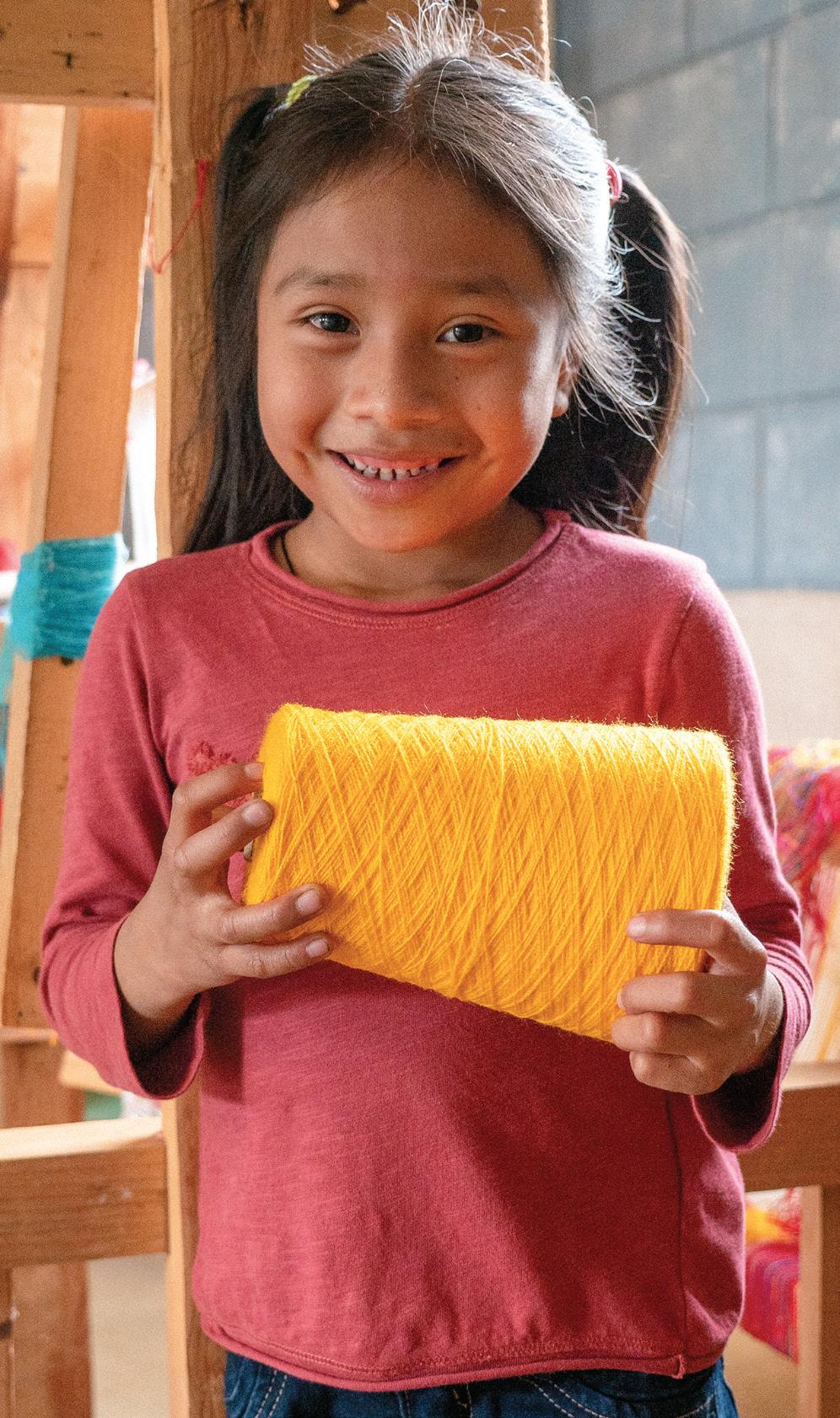
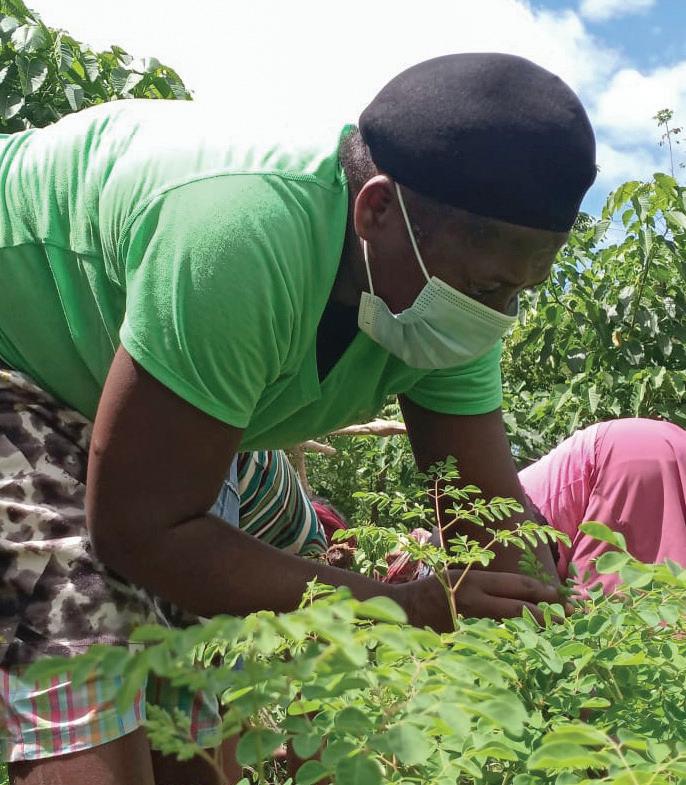
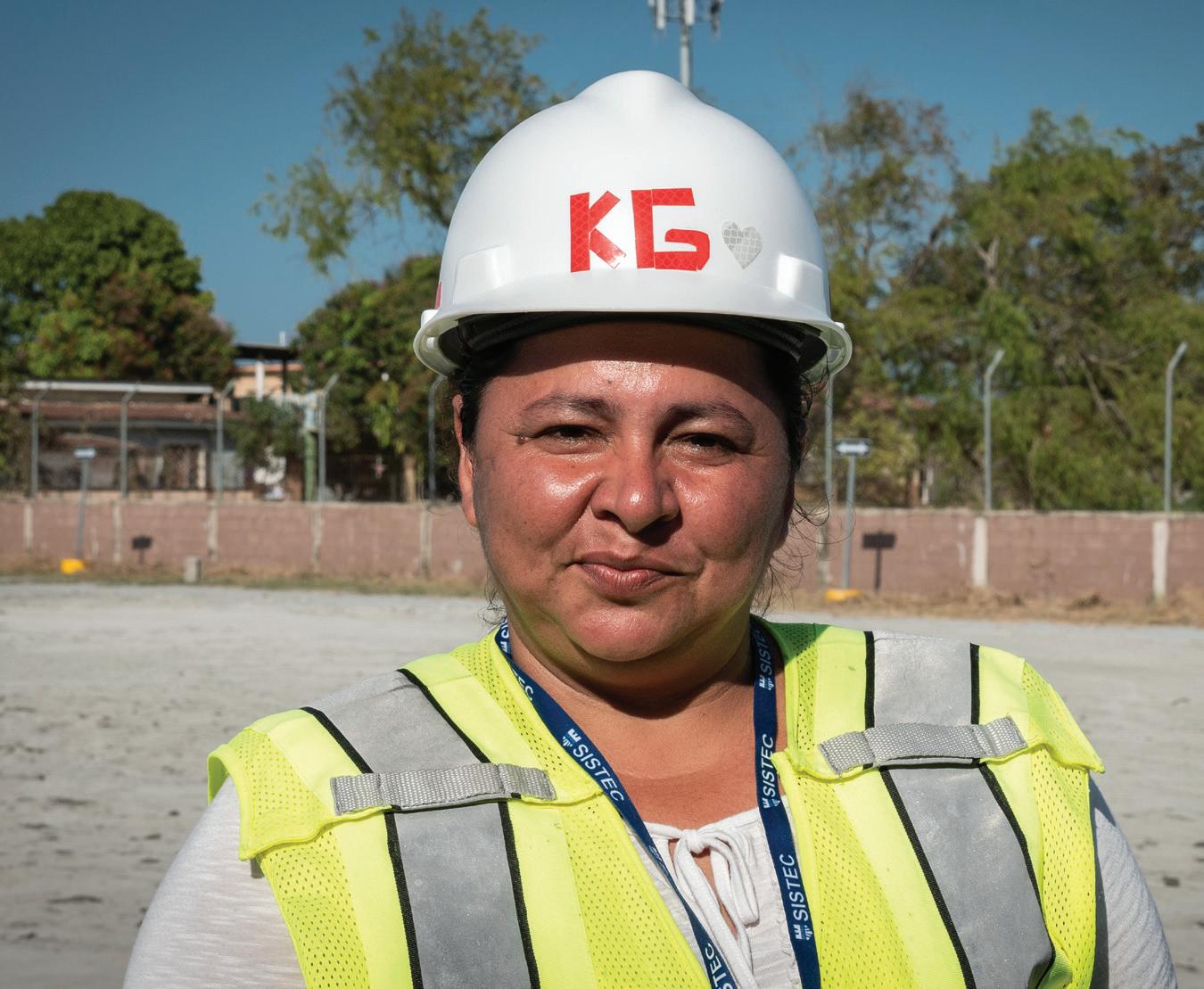
If you are interested in partnering with Food For The Poor on a development project, please visit www.FoodForThePoor.org/corporationsand-foundations/ or contact us at 954-427-2222, ext. 6349, or InstPhilanthropy@foodforthepoor.org www.FoodForThePoor.org • 954-427-2222 6401 Lyons Road, Coconut Creek, FL 33073 LET’S WORK TOGETHER! SEND AN EMAIL




















